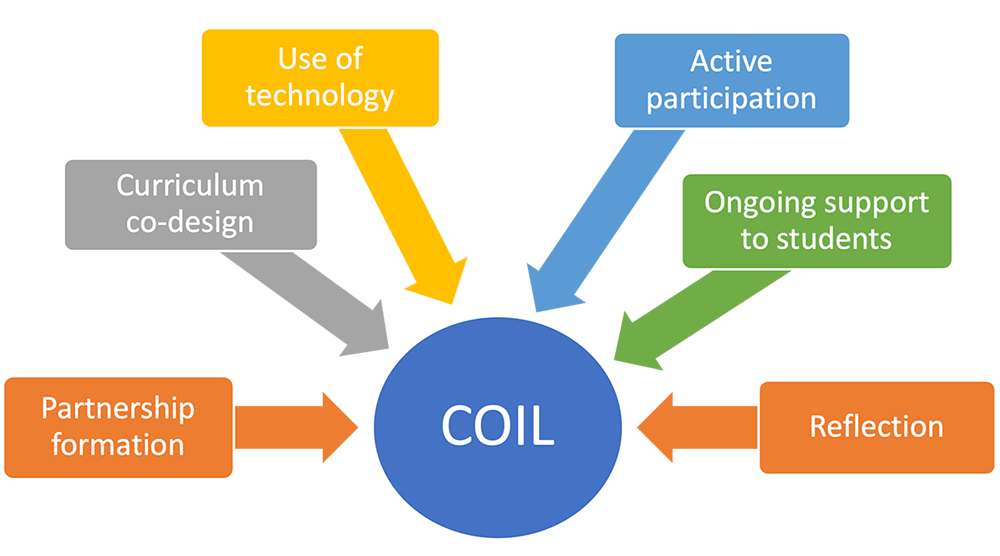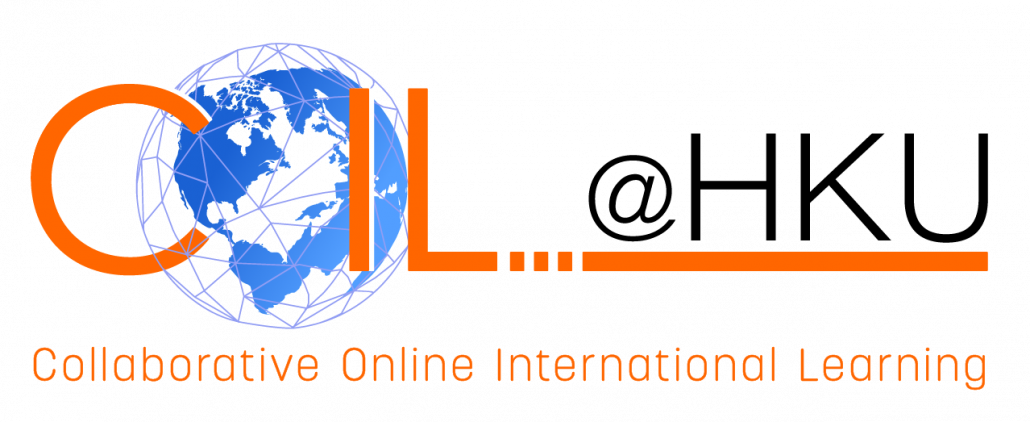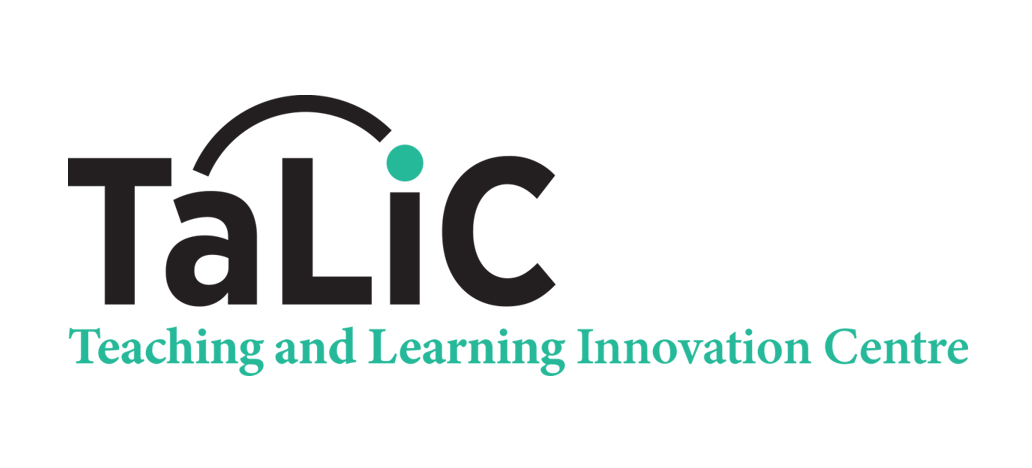Collaborative Online International Learning (COIL) is an innovative pedagogical approach that enables teachers and students from different countries and cultural backgrounds to engage in collaborative teaching and learning through online technology. It aims to increase students’ intercultural awareness and provide a transformative and transnational learning experience.
COIL has numerous benefits to students, teachers and universities including, but not limited to:
- Developing students’ intercultural competence, collaboration and communication skills
- Improving students’ team building capacity and digital literacy
- Fostering the development of global citizenship
- Internationalising the curriculum in a cost-effective manner
- Expanding teachers’ professional networks through virtual exchanges and collaborations
- Encouraging academic collaboration with other universities
COIL Framework
COIL is grounded in the social-constructivist approach which emphasises learning through social interaction. COIL encourages collaborative learning for teachers and students. This involves teachers from partner institutions co-designing a shared curriculum, pedagogical and assessment activities and students from different cultural backgrounds working together to solve problems and complete tasks. The COIL framework has six key components.

- Partnership formation
COIL begins with partnership formation of teachers from different institutions who teach similar or related courses at the university level and have the shared goal of enriching students’ intercultural understanding. - Curriculum co-design
To scaffold students’ development of intercultural competence, teachers from partner institutions would align the COIL component with their course objectives, select appropriate pedagogical methods to engage students, and co-develop learning activities and assessment tasks. - Use of technology
Technology plays a pivotal role in connecting teachers and students of partner institutions. In view of the differences in time zones, learners’ communication styles and digital literacy, a variety of technological tools, such as video conferencing, discussion forums, collaborative editing tools and social media platforms, could be leveraged to facilitate synchronous and asynchronous interaction among participants. - Active participation
COIL stresses students’ active participation in collaborative discussions and tasks whereby learners from different cultural backgrounds could share perspectives and understand each other’s cultural values. - Ongoing support to students
Students may have difficulty collaborating with their overseas peers, so ongoing teacher support is important. Useful support could be helping students form intercultural teams for collaborative tasks, manage group dynamics and sharpen cultural sensitivity. - Reflection
Reflection is crucial for developing intercultural competence. There should be opportunities for students to reflect on their COIL experience, think about the similarities and differences between their and their overseas peers’ perspectives and consider how their own perspective has been shaped.



